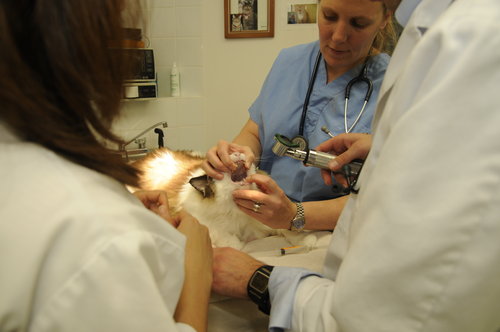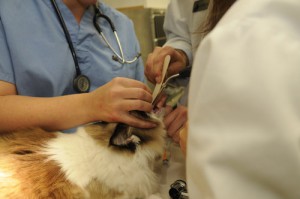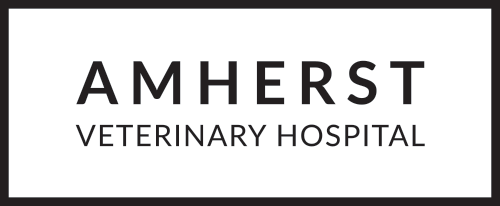Dentistry
There are other reasons why you should pay close attention to your pet’s dental health. Dental disease can affect other organs in the body: bacteria in the mouth can get into the blood stream and may cause serious kidney infections, liver disease, and heart valve disease. Oral disease may also indicate that another disease process is occurring elsewhere in a pet’s body. A thorough physical exam combined with appropriate laboratory work can determine if this is the case.


Starting home dental healthcare early in your pet’s life can greatly reduce the occurrence of dental disease and help to avoid lengthy and costly dental procedures. Ask us how and we can teach you how to brush your pet’s teeth and recommend diets and chews appropriate for them.
Dental Month
Get 15% Off in February & October at Amherst Veterinary Hospital.
Our Services
- Anesthesia and Patient Monitoring
- Boarding
- Diagnostic Imaging
- Dentistry
- Emergency and/or Extended Care
- Euthanasia and Cremation
- Health Screening Tests
- Laboratory Testing
- Laser Therapy
- Medical Services
- Parasite Control
- Pharmacy
- Surgical Services
- Vaccination Programs
- Veterinary Specialist Referrals
- Other Services
